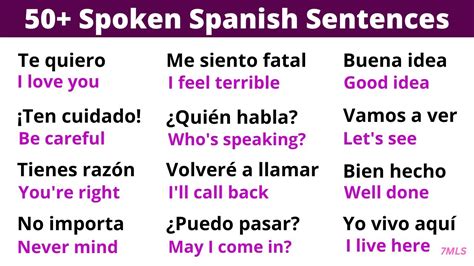Saying you are from a particular country or have a specific nationality can be a great way to introduce yourself when traveling, learning a new language, or simply meeting new people. When it comes to saying “I am Spanish” in Spanish, there are a few key phrases you should know, and understanding the nuances can make your interactions more authentic and meaningful.
Basic Phrases
- Soy español (I am Spanish) - This is the most straightforward way to express your nationality. It’s used for men.
- Soy española (I am Spanish) - This is the feminine form, used by women.
Nationality vs. Language
It’s also important to differentiate between nationality and language. If someone asks you about your language, you would say:
- Hablo español (I speak Spanish) - This indicates that you speak the Spanish language, which might not necessarily mean you are from Spain.
More Contextual Phrases
- Soy de España (I am from Spain) - This phrase emphasizes your country of origin, which is more about where you are from rather than your nationality.
- Soy catalán/valenciano/gallego, etc. (I am Catalan/Valencian/Galician), depending on the region you are referring to. Spain is a country with diverse regions, each with its own distinct culture and, in some cases, language.
Conversational Scenarios
Imagine you’re introducing yourself in a formal or informal setting:
- Formal Introduction: “Hola, me llamo [Your Name], soy español.” (Hello, my name is [Your Name], I am Spanish.)
- Informal Introduction: “Hola, soy [Your Name], de España.” (Hello, I’m [Your Name], from Spain.)
Regional Identities
Spain has a rich tapestry of regional identities, and people often proudly identify with their specific region. For instance:
- Soy madrileño if you’re from Madrid.
- Soy catalán if you’re from Catalonia.
- Soy andaluz if you’re from Andalusia.
Understanding and using these regional identities can show respect and awareness of Spain’s cultural diversity.
Learning More
If you’re interested in learning Spanish or more about Spanish culture, there are countless resources available, from language learning apps like Duolingo to cultural exchange programs that allow you to immerse yourself in the language and customs of Spain.
Conclusion
Expressing your nationality or where you are from in Spanish is straightforward and can be a meaningful part of your interactions with Spanish speakers. Whether you identify as Spanish, are learning about the culture, or simply want to connect with people from Spain, using the right phrases can make a significant difference. Remember, the key to mastering any language is practice, so don’t hesitate to use these phrases in your conversations.
FAQs
What is the difference between "Soy español" and "Soy de España"?
+"Soy español" refers to your nationality, while "Soy de España" refers to your country of origin. Both can be used to indicate you are from Spain, but "Soy de España" is more about where you are from geographically.
How do I ask someone about their nationality in Spanish?
+You can ask, "¿De dónde eres?" (Where are you from?) for an informal setting, or "¿Cuál es su nacionalidad?" (What is your nationality?) for a more formal context.
Can I use "Soy español" if I'm not from Spain but speak Spanish?
+No, "Soy español" specifically refers to being from Spain. If you speak Spanish but are not from Spain, you might say "Hablo español" to indicate you speak the language, and specify your actual nationality or country of origin separately.
By mastering these simple yet effective phrases, you can enhance your interactions with Spanish speakers, whether you’re traveling, learning the language, or simply looking to connect with others.



